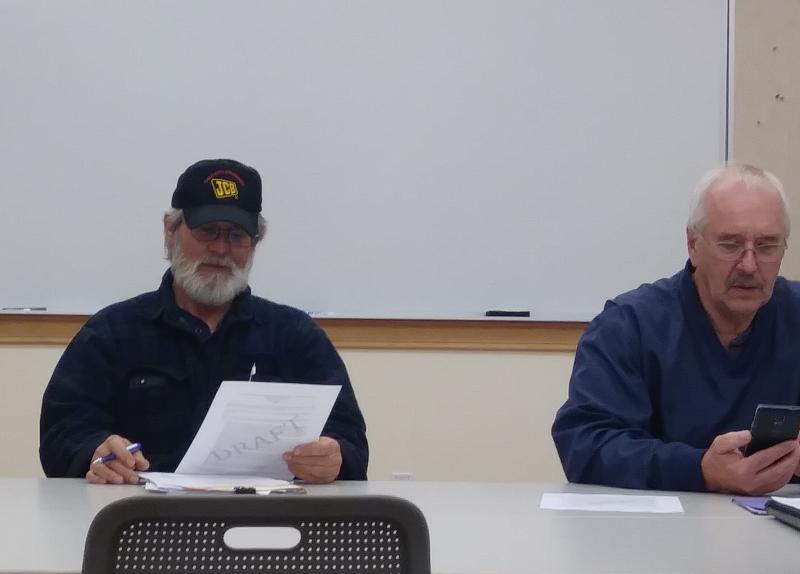Carver, Marion Wareham Refuse District officials debate $19,000 retirement benefit
The Carver, Marion, Wareham Regional Refuse District Committee continued to examine the district’s tangled finances on Feb. 28, discussing a $19,000 payment to a recently retired employee.
The district has been facing financial woes since 2017, when all three towns in the district were blindsided with unexpectedly high trash bills. In February, officials announced that they fired the district’s longtime consultant manager.
The committee voted to end the working relationship with Moss Hollow Management at its Jan. 11 meeting. Members declined to share reasons for the decision. Moss Hollow Management, a largely one-man consultancy owned by Raymond Pickles—who also serves as Marion’s town clerk and sits on the Board of Assessors—had run the trash disposal district for many years.
It was revealed at the district's Feb. 8 meeting that the district itself had not undergone an audit since 2012. Based on that information, and the lack of paperwork for any purchases or sales, Marion's Finance Director Judy Mooney recommended a forensic analysis.
The committee is currently working with two audit companies, Lynch Malloy and Marini, and Powers and Sullivan, to come up with an estimate on what an analysis would cost.
It was the matter of Moss Hollow Management paying a recently retired transfer station employee that caused the most trouble, though. The employee had worked for the district for 40 years, and was paid $19,000 upon departure. Altogether, the records said, he was owed more still, for unused vacation and sick time.
The employee had been paid the original sum by Moss Hollow Management. Committee member Rob Zora of Marion delivered the employee's file to the committee, a move that raised the eyebrows of Marion's Town Administrator Paul Dawson.
“Where did you get that?” Dawson asked. “I talked to Ray Pickles two weeks ago, and I asked him if he had any more documents, because we needed them all, and he said absolutely not. All of a sudden, these appear.”
“Makes no sense to me,” said Wareham's Municipal Maintenance Director Dave Menard.
Zora said he wasn't sure what the deal was—Pickles had just handed him the notes, saying they were for the committee.
Further issues arose when Carver Town Administrator Michael Malinoski noted that at the committee's January meeting, members had told Pickles he was not allowed to issue any more checks, pending a review of finances. The next day, Malinoski said, Pickles cut a $19,000 check to the retiring employee.
Why $19,000, and not the full amount?
“It was probably how much we had at the time,” Malinoski reasoned.
The committee wasn't entirely sure what the maximum number of accrual days for vacations and sick time was in the district—rendering members unable to decide the actual remainder of what the employee is owed.
Zora, the former superintendent of Marion's Department of Public Works, was reticent about the payment analysis.
“This guy worked for the town for 40 years,” he said. “He probably never even read his contract, never knew his maximum. We're a board trying to do the right thing. He worked a lot of unpaid hours, we should be paying him what he's owed.”
Malinoski disagreed.
“It's not the job of the employer to remind employees to use their time or lose it. We're trying to validate the record, then we'll do an analysis, and decide what to do, and you'll get a vote.”
“Anyways,” he added, “How can you pay him? You're basically bankrupt! We need to work through this, we have a lot of bills coming up.”
The most recent information on sick day and vacation accruals was listed in the district's 2012 audit, but changes had been made more recently in the Town of Wareham.
“If there are changes, our polices should change with them,” Malinoski said. “[Pickles] didn't add those changes.”
According to Malinoski, the employee may have accrued more sick and vacation days than the maximum allowed for accrual, in a “use it or lose it” scenario.
Cordeiro, the payroll firm that the district uses, doesn't keep track of vacation or sick days accrued —simply those taken. With the records of the sick days and vacation days that the employee took available from the company, though, Malinoski said that the committee could calculate what he was owed.













